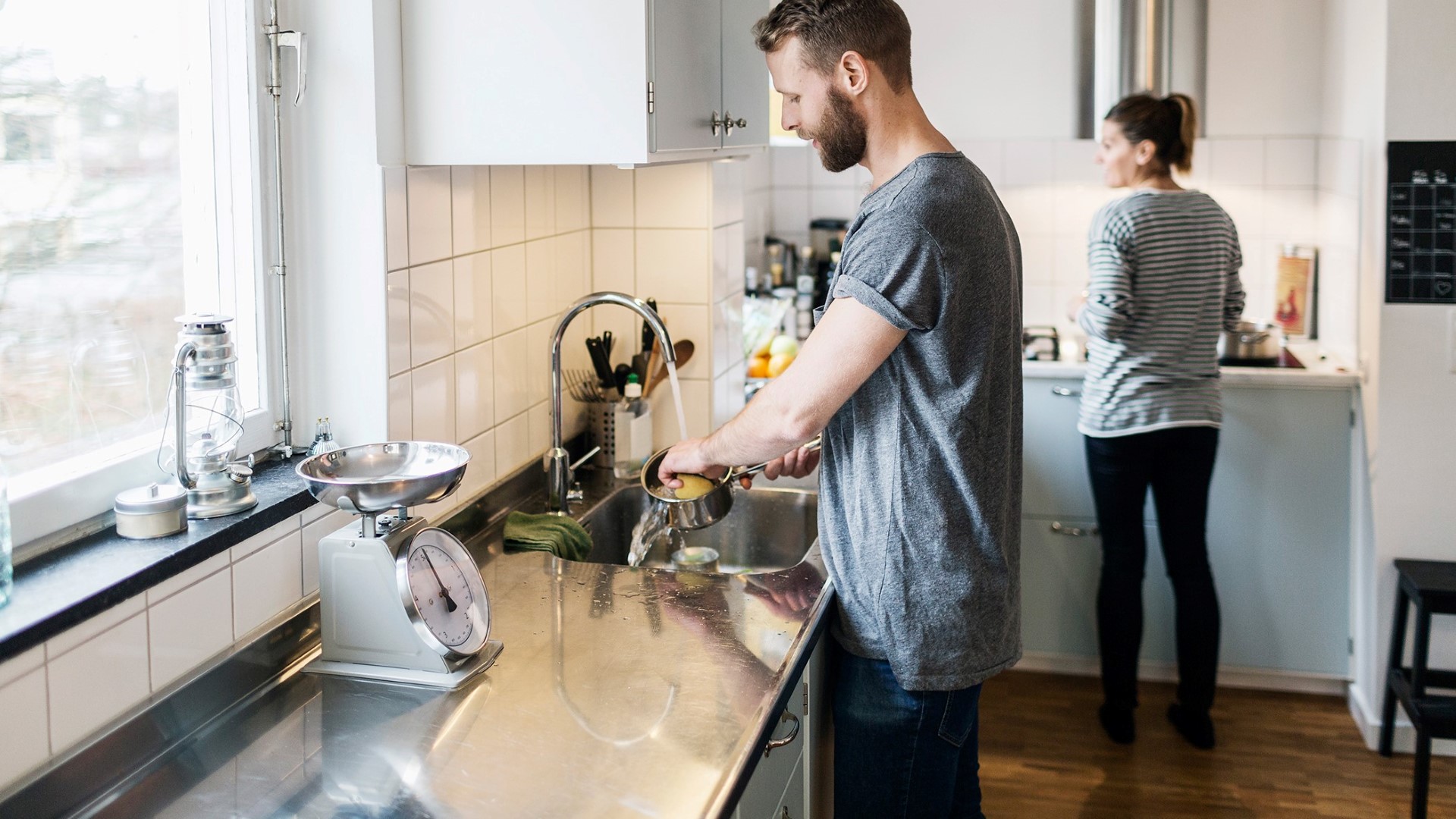
The Pros & Cons Of Living Together After Divorce
Additionally, the old saying “desperate times call for desperate measures” could not be more apt for the times we are all currently living in with coronavirus continuing to run rampant throughout the country.
So before you completely dismiss the idea of living together after divorce out of hand, take a look over our list of pros and cons before you rush out and rent or buy a new place to live.
Pros Of Living Together After Divorce
1) It Saves Money
Living together in one house is cheaper than living separately in two, that’s just simple math and economics. Because the divorce process can be expensive, remaining together in the same home for a while afterwards allows either person to save up for moving out down the road.
2) Childcare Is Easier
You might be surprised at the number of parents who continue living together after getting divorced because of how much easier childcare is. If you and your ex can remain cordial with each other, this scenario provides the minimum disruption to your children’s current routine.
3) It May Motivate You
After getting a divorce, it’s common for couples to sell the family home in order to either get out from under debt or to generate money so both parties can afford new, separate living arrangements.
If you and your ex’s goal is to sell your home, continuing to live together while your home is for sale can both save money and motivate you both to get the sale done as quickly as possible.
4) It May Be Safer (Because of COVID-19)
Right now, moving to a new home is a risky proposition. The risk isn’t from being in a new home or apartment per se, but from all the interactions that will be required to do so. If you are able to safely do everything online, then your risk will be substantially lower.
Ready To Speak To An Attorney?
Call us now at (707) 529-3200
Cons Of Living Together After Divorce
1) You May Still Fight Or Argue
Getting divorced is not a guarantee that the problems you and your partner had during your marriage will be miraculously solved after the process is complete. If you and your ex have drastically different ways of living and/or lifestyles, getting divorced won’t change that and living together may not be a great idea.
2) Your Friends & Family May Not Support You
You need to be ready for (some, or all of) your friends and family to tell you that they think you’re just plain nuts to keep living with your ex after getting divorced. If their support and approval is important to you, maybe run that idea up the flagpole with a few of them first before totally committing to that plan of action.
3) It Might Ruin What’s Left Of Your Relationship
If you and your partner end your marriage on relatively good terms, continuing to live together runs the risk of eroding that relationship. What happens if one of you wants to start dating, for example?
Think carefully and talk to your ex about the potential pitfalls and consequences of staying in the same home after your divorce before making a final decision.
It’s Not For Everyone, And That’s Okay
Living together after divorce is not for everyone, and in many cases it’s probably a terrible idea. People don’t get divorced because everything is going great in their marriage, they get divorced because there are problems.
If you and your ex are considering the idea, do yourselves a favor and have an open and honest conversation about your expectations and concerns before making a decision.
REQUEST A FREE PHONE CONSULTATION
At Vonder Haar Law Offices, we offer every client a free phone consultation to discuss their unique situation and determine how we can help. To arrange a consultation, please fill out the adjacent form or call us at: (707) 529-3200.
We provide representation in California State and Federal Courts. We accept most major credit cards for your convenience.
